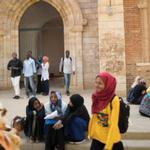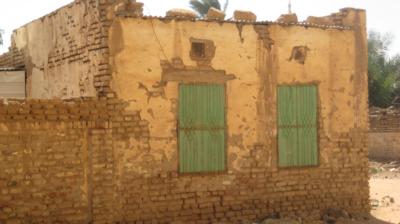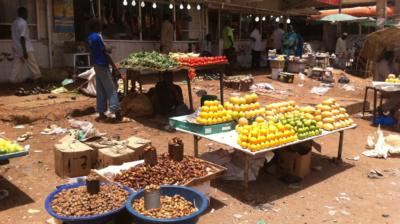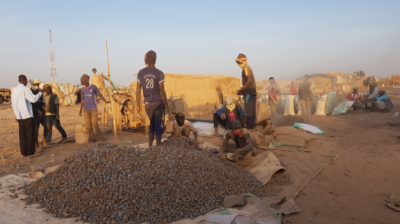The Sudan war: The potential of civil and democratic forces
All attempts to bring Sudan’s warring generals, Burhan and Hemedti, to the negotiating table have failed. But a new player has emerged: The antiwar coalition Taqaddum. Can they bring the change that is needed?
When IGAD held its 41st Extraordinary Summit in Djibouti in December, the focus was on measures that could bring the war in Sudan to an end. Concluding the discussion, IGAD issued a communique urging the two warring parties to stop the fighting. Hemedti welcomed the communique, agreeing to meet Burhan at any time at a location chosen by IGAD. Burhan, despite being the one who called for the extraordinary summit, rejected the communique claiming that its contents misrepresented the outcome of the Summit.
A new pattern has emerged. While Burhan seems to be digging his heels in, Hemedti is taking on the role of a statesman. On December 27th, after nine months in hiding, Hemedti appeared in Kampala and met with the Ugandan President Y. K. Museveni. In the following few days, he visited Ethiopia, Djibouti, Kenya, South Africa, and Rwanda. But even more importantly, he met with Taqaddum or the Coordination of Civil and Democratic Forces (CCDF), a newly formed antiwar coalition headed by former Prime Minister Abdalla Hamdok.
While Burhan seems to be digging his heels in, Hemedti is taking on the role of a statesman.
Taqaddum (CCDF) consists of the Forces for Freedom and Change (FFC) and several civil society organizations. The coalition was established in October 2023 with the key objective of finding a peaceful solution to the conflict in Sudan. But can Taqaddum make any difference? And are they linked to Hemedti or was the meeting between them simply a result of Hemedti again seizing the opportunity to portray himself as a statesman while Burhan is sidelined? The contact between the parties shows that Burhan may have played hard to get for too long.
A declaration sparking controversy
In late November 2023, the FFC asked for a meeting with General Burhan, but he ignored the request. Another request, this time by Taqaddum, was sent to both Burhan and Hemedti in late December 2023. While Hemedti responded positively, Burhan let them wait. When he eventually responded, it felt forced. More than showing an actual interest in Taqaddum, his reply seemed to be a response to the meeting between Taqaddum and Hemedti that took place 29-30 December 2023 in Addis Ababa. The meeting between Taqaddum and Hemedti resulted in a declaration of principles signed by Abdalla Hamdok and Hemedti and generated controversy in Sudan among those who support SAF and those who call for ending the war.
Some of the key points in the declaration were: The RSF expressed that they were ready to immediately and unconditionally cease hostilities through direct negotiations with SAF. They pledged to open safe corridors for humanitarian aid and provide the necessary guarantees to facilitate the work of humanitarians and protect aid workers, and fully cooperate with the Fact-finding Mission of the UN Human Rights Council to ensure the truth is revealed, to form a credible independent national committee to monitor all violations across Sudan and identify the perpetrators in a way that ensures accountability, and to form a credible committee to uncover the facts about who started the war. On issues of ending the war and re-establishing the Sudanese state, the declaration reiterated the provision of the Framework Agreement signed 5 December 2022 that includes unity of Sudan, equal citizenship, federalism, security sector reform, dismantling the structures of the former regime in civil and military institutions, and transitional justice. The declaration was deemed by its signatories to constitute a good basis for a political process that can end the war and re-establish the Sudanese state.
Searching for scapegoats
SAF and its supporters rejected the declaration and declared Taqaddum and the RSF as allies. They claimed that the signing of the declaration removed any reasonable doubt that Taqaddum is the political wing of the RSF- an accusation that has long been circulating among former regime supporters. Another criticism against the declaration between Taqaddum and the RSF is that it went too far: It discussed political issues when it should have been limited to the question of a ceasefire and cessation of hostilities. Also - since political issues were brought to the table – it should have been more inclusive and involved other Sudanese interlocutors in addition to Taqaddum. Other critics have argued that Taqaddum should have shared the draft of the declaration with the Sudanese Armed Forces (SAF) before cosigning it with the RSF.
SAF and its supporters rejected the declaration and declared Taqaddum and the RSF as allies.
Much of the criticism is understandable, but Burhan has to take his share of the blame. Taqaddum reached out to the SAF leader before getting in touch with the RSF but were met with a cold shoulder. But the problems with Taqaddum, and Sudanese civilians at large, are about more than just signing the declaration of principles with the RSF.
Civilian disarray represents one of the impediments to ending the conflict in Sudan. In fact, this disarray contributes to explain the war itself. It is bewildering that civilians did not learn from their mistakes during the failed transition. It is understandable that Taqaddum rejects the inclusion of former regime loyalists in any political process, but it is not understandable why other actors are not included. Key actors include Sudan People’s Liberation Movement-North led by Abdelaziz El-Hilu and Sudan Liberation Movement led by Abdelwahid El-Nur. Taqaddum has later on reached out to these two movements, but this happened after the signing of the declaration of principles with the RSF. The two movements responded positively and will meet with Taqaddum, but the pace of Taqaddum’s work is slow and does not tally with the volatile and rapidly deteriorating situation on the ground. Additionally, Taqaddum is supposed to hold its first general assembly and, before that, organize a series of workshops that will provide the basis for a roadmap for the political process. Taqaddum organized four workshops during February and early March 2024, but these workshops were seen by some civil society groups as not inclusive. Without broadening its base, it risks being an ineffective civilian coalition in the face of the two warring parties. But Taqaddum should not be the scapegoat alone: There is an active front that is sabotaging negotiations and undermining the efforts of the multilateral organizations, like the AU and IGAD, in ending the conflict. Pressure must be put on the two generals and those behind them before criticizing the civilians.
Caught between a rock and a hard place
Where is the place of the civilians in the different initiatives aimed at ending the war? Civil society has increasingly been involved in the negotiations between the RSF and SAF. Following the IGAD Summit on December 9, the Djiboutian President and IGAD chair, Ismail Omer Guelleh, met with Taqaddum after first meeting with Hemedti. Taqaddum was also invited to attend IGAD’s 42nd Summit in Uganda, which was held on 18 January 2024 and which Sudan boycotted. In fact, Sudan suspended its membership in IGAD after this Summit and declared that it will not recognize any action taken by IGAD with regard to Sudanese issues. This leaves the country outside the two multilateral organizations in the region as Sudan’s membership in the AU was suspended following the October 21, 2021 military coup.
Civil society has increasingly been involved in the negotiations between the RSF and SAF.
Taqaddum has found itself between a rock and a hard place: The RSF and SAF are engaging in a dog fight for the past eleven months thinking they will crush each other, on the one hand, and, on the other, hostile civilians aligned with SAF, including former regime loyalists, who are rejecting and undermining what Taqaddum is doing. Yet, Taqaddum remains the most credible civilian body. The coalition enjoys both regional and international recognition, and it also is gaining increasing recognition within Sudan. The Sudanese people are fed up with the war and want to get back to their homes and ordinary life. Eleven months of fighting has made many realize that there can be no military solution and that a negotiated settlement is the way forward. Yet, there is still a loud and disillusioned segment of Sudanese society that via social media is calling for total eradication of the RSF. The RSF has committed horrendous acts against the Sudanese people, so these calls are certainly understandable and may also be justified. But they are not realistic. Rather than bringing Sudan closer to any solution, they complicate efforts aimed at ending the war. The only way in which Taqaddum can make a difference is by having a broad civilian coalition; a coalition so broad that it includes the disillusioned as well as moderate Islamists who believe in a peaceful transition and are able to demonstrate this by calling for an end to the war.
This Sudanese Perspectives blog post is written by Munzoul Assal, professor at the University of Khartoum and scholar at risk/researcher at CMI.
The views expressed in this post are those of the author, and do not necessarily reflect the opinions of the SNAC project or CMI.






